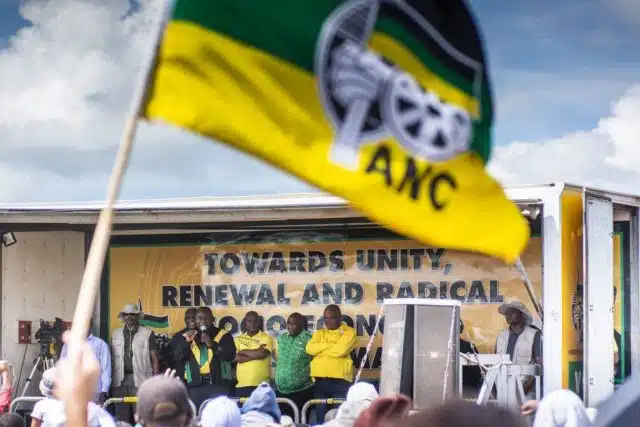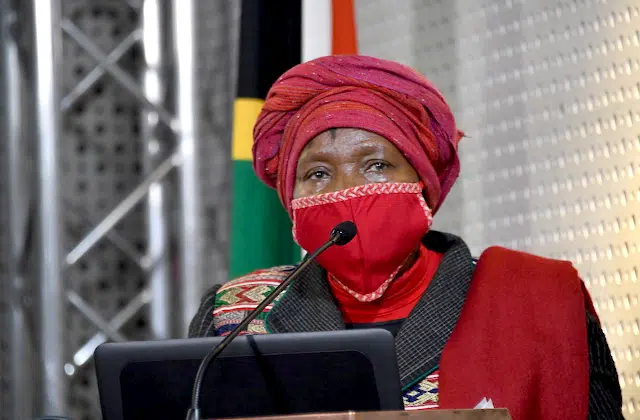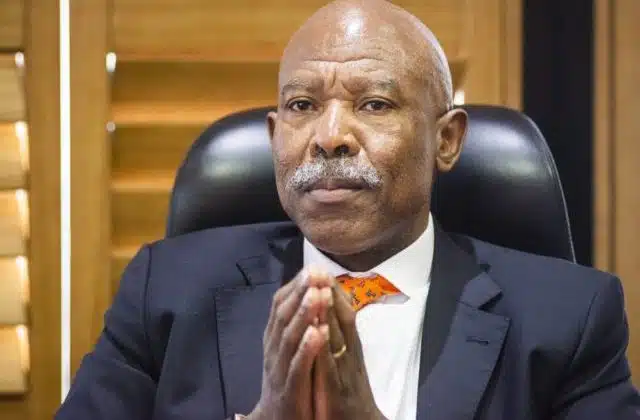
ANC likely to win 2024 vote even as city support plunges, survey shows
South Africa’s governing party is likely to win the country’s next national elections in 2024 even as its support slips further in major cities, a survey showed.
The African National Congress, which has led South Africa since apartheid ended in 1994, will probably win more than half the vote, although two thirds of the urban electorate are likely to turn to opposition parties, the Social Research Foundation said. Its conclusions were based on the views of 3,204 registered voters canvassed in July.
The results contrast with those of several other polls, which showed support for the ANC dipping below 50% for the first time in a national election, as it did in a municipal vote last year — a backlash against poor government services and widespread corruption.
Ipsos, a polling company, this month predicted the ANC would win 42% of the 2024 vote, while Johannesburg-based newspaper Rapport said an internal poll conducted by the party and other research showed it would garner 38%.
“The ANC is wounded but not slain,” the SRF said in a report sent to Bloomberg on Monday. “If you pressed the authors of this report for a single call, it would be that the ANC would secure a majority in the low- to mid-50 percentiles were an election held today.”
Rural Backing
Still, the research shows the ANC’s support is increasingly concentrated in rural areas and among Black voters, with most opposition parties showing diversity among their support. About 80% of South Africans are Black.
The ANC has “surrendered urban South Africa to the opposition,” the SRF said. “The next decade will likely see South Africa’s economic hubs governed by very different political actors to those who control the bulk of its rural heartlands.”
Opposition parties or opposition-led coalitions already rule five of South Africa’s six biggest metropolitan areas.
The opposition Democratic Alliance controls the Western Cape Province, and the ANC the remaining eight provinces. The 2024 elections may see the opposition take control of Gauteng, the country’s economic hub, and the sparsely populated Northern Cape, the SRF said.
Zuma Factor
The outcome in KwaZulu-Natal is hard to predict because of the popularity of former president Jacob Zuma, who is supported by an ANC faction that’s in conflict with a group that backs current national leader Cyril Ramaphosa, the research organization said.
The loss of urban support by liberation parties is a phenomenon seen elsewhere in southern Africa, including in neighboring Zimbabwe, with city resident more concerned about high unemployment, poor services and surging living costs than maintaining loyalty to parties that engaged in struggles decades ago.
The Democratic Alliance, South Africa’s main opposition party, draws most of its support from the cities, with no more than a third of it coming from any single race group. It is is the only major party led by a White South African.
The country’s third-biggest party, the Economic Freedom Fighters, has mainly Black supporters, while newcomer Action SA gets a third of its support from Black South Africans and almost 60% from White people, the SRF said.
Opposition Policies
The EFF advocates nationalizing land, mines and banks in policies reminiscent of those espoused by the ANC in the struggle against White minority rule, while Action SA’s most distinctive policy position has been to take a hard line against foreign immigrants.
“The political future could therefore come to resemble one of fairly racially integrated, more urban, somewhat better educated, increasingly middle class, and quite cosmopolitan political parties governing South Africa’s economic hubs,” the SRF said. At the same time “more racially exclusive parties drawing voters from lower socio-economic spectra” would control rural areas,” it said.
The SRF survey forecasts that 52% of likely voters would choose the ANC if there was 56% turnout at the election, while 50% would vote ANC if the turnout was 66%. The DA would win 25% under both scenarios, the EFF between 11% and 12%, and Action SA 5% to 6%. The survey had a 1.7% margin of error.
The ANC won 57.5% of the vote in the 2019 elections, the DA 20.8% and the EFF 10.8%.



